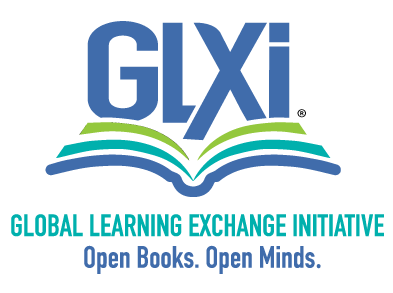GLXi partners with St. Louis software company and AI to bring digital children's books to Guatemala
“Over the past two years, I’ve had the incredible opportunity to volunteer with the Global Learning Exchange Initiative (GLXi), working alongside fantastic teams to harness Generative AI for social good. In this piece, I share how we used AI to co-create culturally relevant, engaging children’s stories for teachers in remote Guatemalan classrooms—making education more accessible and impactful.
AI has the power to do more than automate; it can empower educators and enrich students’ lives.”
There are a lot of hesitancies surrounding AI. But there are also stories of progress and innovation. And now, AI is also allowing for the delivery of digital children’s books – plenty of them! – to remote, underserved regions of Guatemala. This is thanks to a unique volunteer collaboration between Global Learning Exchange Initiative (GLXi), 1904labs, a St. Louis-based software development company, and Matthew Pitlyk, Senior Machine Learning Engineer at Medchat.
We are beyond thrilled to share the details of this creative and inventive project, through the words of one of the project partners, and our valued GLXi volunteer, Jazmin Adriana Campos.
As Hispanic Heritage Month ends, I want to share my story about my volunteer work with the Global Learning Exchange Initiative (GLXiⓇ) organization. I am immensely proud of this project because, as a Latina, I took part in a project that will positively affect the lives of other Latinos and demonstrate how technology—particularly Generative AI—will positively impact education in Guatemala.
In November 2022, 1904labs CEO Sean Walsh, a former GLXi board member, offered to create a team of 1904labs employees and resources to collaborate with GLXi organization to address a significant challenge: providing affordable children's stories to remote Guatemalan teachers and their students. Traditional physical books were too expensive due to licensing costs, and a sustainable digital solution was needed. That's where Generative AI came in.
At first, we brainstormed around the potential of large language models (LLMs) to generate culturally relevant, educational children's stories.
But it wasn't until the release of OpenAI Chat GPT that we saw how this could be a game-changer.
The USA team worked closely with the Guatemalan team to determine what would make for a good children's story. In collaboration, we created a framework that our chatbot would follow to safeguard against harmful elements, considering the child's grade level, the number of words per story according to age level, appropriate themes, and vocabulary. We took it a step further by instructing the bot to provide a glossary for the target vocabulary and activities the teacher could do to accompany the story.
With the release of ChatGPT's custom GPTs (which Open AI introduced in late 2023), offering an easy-to-use platform, our team was able to create "Maestro Juan Chapín," an AI-powered co-author modeled after a Guatemalan folklore hero. This co-author chatbot was developed to help teachers in Guatemala create engaging, culturally relevant children's books.
“Many fear how AI will change our world, but projects like this show that AI can be a force for good when used ethically—making education more accessible for underserved communities.”
The impact? 40+ AI-generated stories have been generated by Team USA and vetted by both Team USA and Guatemala. These stories aren't just random outputs— shaped by a framework we developed alongside Guatemalan educators to ensure they align with local pedagogy and culture. Thirty-eight teachers from the "Open Minds in Action Program" in Guatemala will voluntarily participate in the AI-generated books project. They will use these AI-generated stories as a starting base. Each teacher will be assigned a story to review, become familiar with the content, and propose improvements. Next, they will each create illustrations to accompany the story, and finally, they will make an audiobook version! How amazing is this?!
Many fear how AI will change our world, but projects like this show that AI can be a force for good when used ethically—making education more accessible for underserved communities. I'm proud to have been part of something that will have a lasting impact on teachers and students in Guatemala. This experience has taught me that Generative AI can do more than solve technical problems; it can also help bridge cultural and educational gaps. It has been an honor to contribute to a project where AI empowers local teachers and enriches children's lives through stories rooted in their heritage. On a personal note, Matthew Pitlyk and I were recognized and awarded "Volunteers of the Year" by the GLXi organization in September. What a proud moment this was for us!
"Maestro Juan Chapín" is an AI-powered co-author that was created by two of our valued GLXi volunteers: Matthew Pitlyk, Senior Machine Learning Engineer at Medchat, and Jazmin Adriana Campos, an UX Designer/Researcher and Conversational AI Developer.
Working over the past two years with GLXi Board President Amy Inman, and our education team in Guatemala, Jazmin and Matthew developed this chatbot to help teachers in Guatemala create engaging, culturally relevant children's books – getting a low-cost literacy solution to the areas of the country that need it most.
You can help support GLXi by donating here.

